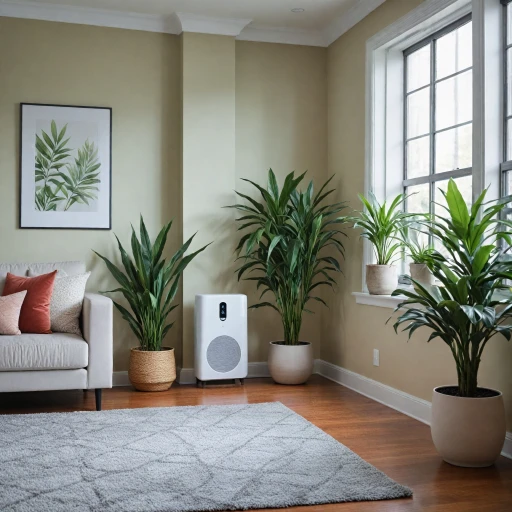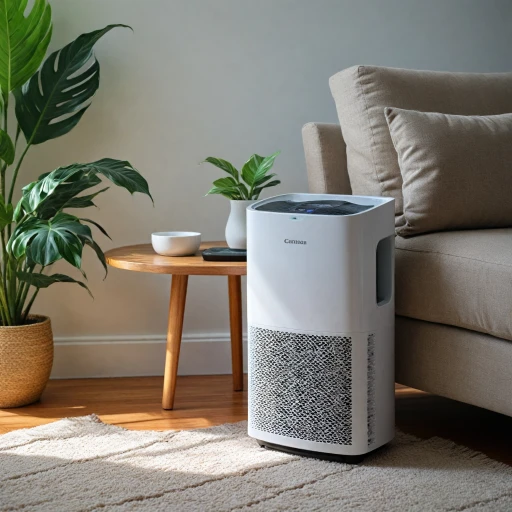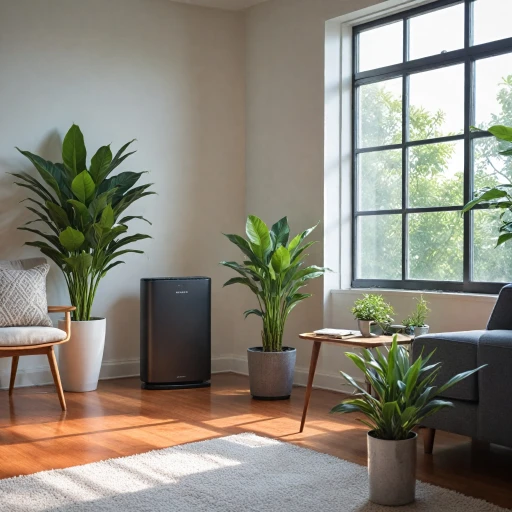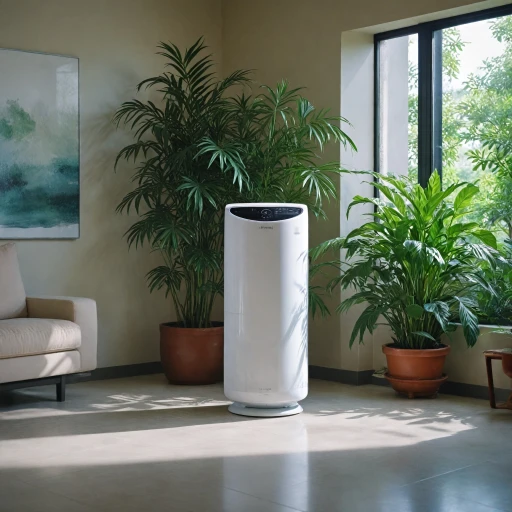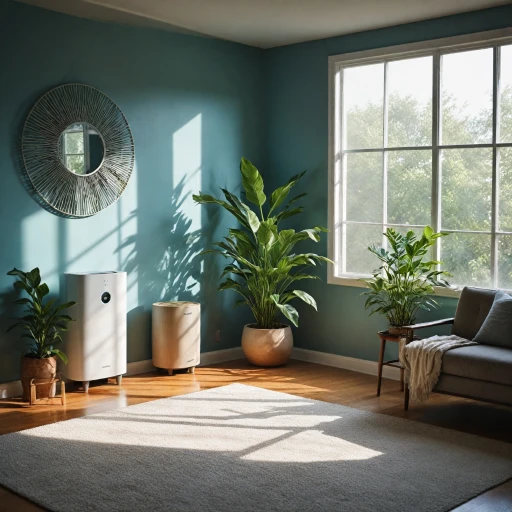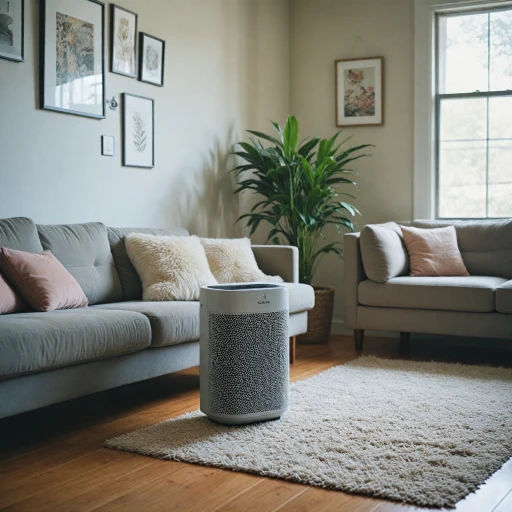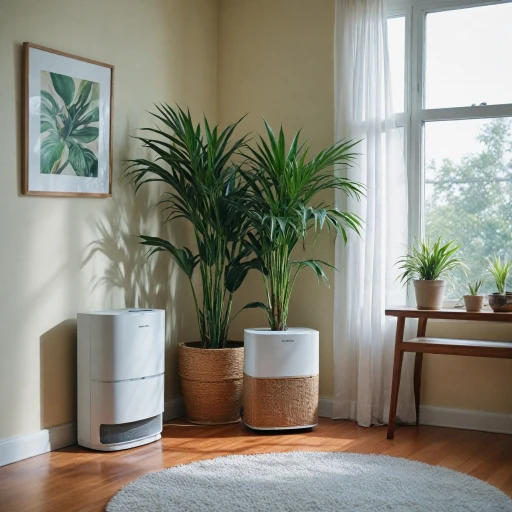What Makes an Air Purifier FSA Eligible?
FSA Eligibility Criteria for Air Purifiers
Navigating the world of Flexible Spending Accounts (FSA) can be complex, especially regarding which medical items are deemed eligible. In the case of air purifiers, a few specific conditions must be met for the unit to qualify as an FSA-eligible expense. Firstly, a doctor's note, often referred to as a Letter of Medical Necessity, is typically required. This letter must outline why an air purifier is essential for the treatment or management of a health condition such as asthma or severe allergies. It helps establish the medical necessity of the purchase, justifying the use of pre-tax dollars for such an acquisition. Moreover, not all air purifiers qualify. The device should primarily address issues related to air quality, impacting health improvements. Models featuring HEPA filters are commonly recommended due to their efficiency in trapping fine particles such as dust, pollen, and even some microbes, thereby attaining better air purification quality. Considering the price factor, it's worth noting that the purchase must be related to health, not merely convenience. Air purifiers with advanced filtering systems might range from regular price to sale price units but must align with the health criteria laid out by the FSA. For additional insights on the value and potential long-term savings of using air purifiers, explore this link on the worth of air purifiers. It provides a broader perspective on investment aspects, highlighting how these devices could be a valuable addition to one's healthcare regimen.Health Benefits of Using an Air Purifier
Improving Respiratory Health
Air purifiers play a critical role in enhancing indoor air quality, which is essential for maintaining good health. The use of HEPA filters in these purifiers effectively captures allergens such as pollen, dust mites, and pet dander, thereby reducing the risk of respiratory issues. This is particularly beneficial for individuals with asthma or allergies, where air purification can be deemed a medical necessity.
Beneficial for Various Health Conditions
For those with specific medical conditions, air purifiers can provide substantial relief and improvement in quality of life. The ability to eliminate airborne bacteria and viruses helps to control and limit the spread of infectious diseases within indoor environments. This attribute makes certain air purifiers eligible for purchase using FSA and HSA funds, as they are considered essential in managing health conditions.
Reduction in Long-Term Health Costs
By investing in an air purifier early on, individuals may save on healthcare costs associated with medical conditions exacerbated by poor air quality. The purchase of air purifiers using pre-tax dollars through an FSA or HSA can further extend these savings, allowing more effective management of one's health budget. Regular replacement of filters ensures the unit continues to operate at optimal efficiency, extending the life and benefits of the purifier.
How to Purchase an FSA Eligible Air Purifier
Selecting the Suitable Air Purifier with FSA Eligibility
Navigating the process to purchase an FSA-eligible air purifier might seem daunting, but with a few steps, you can make a confident choice. Understanding the criteria is key to ensuring that your investment serves both health and financial purposes. First, confirm that the air purifier you intend to purchase is recognized as medically necessary. This often means that it meets specific conditions such as being equipped with a HEPA filter for exceptional air quality improvement. Medical necessity is crucial for FSA eligibility and typically requires a letter of medical necessity from a healthcare provider. Here's how you can streamline your purchase:- Research the Model and Price: Begin by exploring different models and their features. Look for purifiers that explicitly state FSA eligibility. Factors such as unit price, replacement filter costs, and sale prices should be considered to stay within your FSA funds budget.
- Review Product Details: Carefully review stars reviews and detailed descriptions to ascertain the purifier's effectiveness in meeting health needs. Products like Medify Air are often highlighted for their efficacy and eligibility.
- Verify FSA Status: Double-check the product's eligibility with your FSA administrator to avoid any discrepancies later. Some sales may emphasize regular price reductions or pre-tax benefits, so ensure these align with your financial planning expectations.
- Purchase Process: When it's time to make the purchase, use a payment method linked to your FSA account to directly utilize your tax dollars, ensuring a seamless transaction without out-of-pocket expenses.
Popular FSA Eligible Air Purifiers
Top-Selling Air Purifiers Eligible for FSA Benefits
When you're looking to invest in an air purifier that's FSA eligible, several options have earned high ratings and are widely recognized for their effectiveness. Here are some popular choices that seamlessly integrate with your FSA plan:- Medify Air MA-40 2.0: Known for its powerful filtration capabilities, this model includes a HEPA filter that captures 99.97% of particles down to 0.3 microns. Its FDA approval ensures that it meets medical standards for air quality improvement, justifying its FSA eligibility. Users appreciate its high stars reviews, citing significant improvements in indoor air quality.
- Blueair Classic 480i: This purifier boasts a combination of electrostatic and mechanical filtration, addressing a broad spectrum of airborne pollutants. Its quality and performance make it a smart choice for FSA funds, offering a substantial return in health benefits and peace of mind.
- Honeywell HPA300: A highly trusted and FSA eligible option, the Honeywell HPA300 effectively handles spaces up to 465 square feet. Its efficient HEPA filter enhances your home's air quality, making a significant health benefit that counts toward the justification of a medical necessity.
Maximizing FSA Benefits with Air Purifiers
Making the Most of FSA Benefits with Air Purifiers
Purchasing an air purifier deemed FSA eligible can be a strategic move when planning to optimize your flexible spending account. Here are a few tips to maximize the benefits:- Use Pre-Tax Dollars Wisely: By utilizing pre-tax dollars from your FSA or HSA, you reduce the financial burden compared to paying out of pocket. This allows you to save on air purifiers that contribute positively to your health.
- Evaluate Health Necessities: Consider obtaining a letter of medical necessity to ensure that your air purifier purchase meets FSA and HSA criteria. Discuss with your healthcare provider if chronic conditions like allergies justify this expenditure as a medical necessity.
- Stay Informed on Price Units and Sales: Keep an eye on sales to make a well-timed purchase of air purifiers, which can significantly decrease the price compared to regular pricing. Platforms that offer sale price units are ideal for making your funds stretch further.
- Consider Replacement Filter Costs: Regularly maintaining your air purifier involves purchasing replacement filters. Plan your budget accordingly, as these costs could be part of your FSA expenses, maximizing the health benefits without extra financial impact.
- Research Popular Models: Ensure you choose a purifier that meets your standards and preferences by relying on expert and stars reviews. Units like those from Medify Air are noted for their hepa filters and effectiveness in improving air quality.
- Flexibility with FSA Funds: With the time purchase of FSA funds constraints, such as the year-end use-it-or-lose-it risk, it's critical to plan ahead to avoid losing your benefits.
Common Questions About FSA and Air Purifiers
Clearing Up Common Concerns
Many individuals looking to use Flexible Spending Account (FSA) funds for air purifiers are often filled with questions. To help you make an informed decision, we've addressed some of the common inquiries here: Is a doctor's note required to buy an air purifier with FSA funds?In most cases, you will need a letter from a healthcare provider confirming the medical necessity of the air purifier. This letter acts as a justification for why the air purifier is needed to improve your health, making it FSA-eligible. Using a purifier to reduce allergy symptoms or asthma triggers are typical examples where such a letter might be accepted. Can any air purifier be purchased with FSA funds?
Not all air purifiers qualify for FSA purchases. The unit must be considered medically necessary and often needs features, such as HEPA filters, that are recognized for health benefits. It's essential to verify with your FSA administrator if the specific model is eligible before making the purchase. Are replacement filters covered under FSA?
Replacement filters may qualify as an FSA-eligible expense since they are essential for maintaining the purifier's health benefits. Confirm with your FSA provider to ensure these expenses are covered, helping you to save on regular maintenance costs. Does the use of FSA funds affect my taxes?
Using your pre-tax dollars from an FSA can indeed reduce your taxable income, making it a financially wise decision. Since these funds are set aside before taxes, using them for eligible medical expenses can lead to significant savings. What should I consider about the air quality before buying?
It's helpful to assess the air quality in your home to determine what type of purifier will best suit your needs. Take into account factors like the size of your space, specific health conditions you're addressing, and which allergens or pollutants are present in your environment. For further understanding of how air purification can impact your health, you might find it useful to learn about the benefits of using a pure air purifier. This information can further support your case when requesting a letter for medical necessity. Understanding the specifics of your FSA plan and the regulations around eligible expenses can significantly aid in making the most of your allocated funds when purchasing an air purifier. By navigating these questions and reassessing your plan details, you're on your way to breathing cleaner, healthier air while making a smart financial choice.

